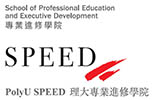雙語社評齊齊聽
[英語 (足本收聽)] Presented by Mr CHAN, Jason Siu-chuen, Lecturer of Hong Kong Community College, The Hong Kong Polytechnic University
[普通話 (足本收聽)] Presented by Dr MAO, Michelle Sheng, Lecturer of Hong Kong Community College, The Hong Kong Polytechnic University
At a time when all sorts of businesses are facing hardships and the unemployment rate is on the rise in Hong Kong, the pay adjustment arrangement for the city's 180,000 civil servants has become an issue of great concern. The Hong Kong Chinese Civil Servants' Association (HKCCSA), the largest civil service union in the city, has suggested a three-year wage freeze for the entire civil service starting from this year but several prerequisites are also laid down in the proposal, including a two-year pause of the pay trend survey from next year onwards. In the face of internal and external adversities, Hong Kong's economy is unlikely to recover for a certain period of time. Any arrangement that allows a "pay rise despite the pandemic" for civil servants is unreasonable and will hardly be accepted by the public. The proposal of a wage freeze for three years appears to show a willingness to "ride out the hard times together" on the surface, but it is in essence a strategy for making gains tomorrow by making concessions today — an attempt to avoid salary cuts that would be based on the pay trend survey over the next two years. The public expect civil servants to ride out the hard times with them sincerely. If civil servants want to stop the pay trend survey whenever the survey puts them at a disadvantage, that will inevitably leave the public with an impression that they agree to our system only when it favours them, but will oppose it when it does not.
The annual pay survey conducted by the Pay Trend Survey Committee under the civil service is one of the major indexes of how the government should adjust the civil service payroll. The committee's work is to look at the levels of salary adjustment in private companies over the past year. According to the latest survey, the net pay trend indicators this year correspond to a pay increase of 1.15% for junior civil servants, 1.98% for middle-level civil servants and 1.68% for senior officers. Civil servants who have not reached the highest pay point of their salary band can still move one point up every year. If that part of increment is taken into account, theoretically some civil servants may even have a pay rise higher than what has been recommended.
The HKCCSA has proposed to the government a "3+3" plan. On the one hand, it suggests freezing the salaries of all civil servants for three years. On the other hand, it lays out three special arrangements, like compensating the civil servants with the pay increase recommended this year once the economy has recovered. It also proposed suspending the pay trend survey for two years from next year onwards. Still, some other civil servants' associations show reservations about a salary freeze.
Since the outbreak of the Covid-19 pandemic, the Hong Kong government has implemented measures to "support the economy and safeguard jobs" even though that would cost the fiscal reserves hundreds of billions of dollars. This year's budget even has an unprecedented deficit. To the employees of many private companies, it will already be a great blessing if they can be spared from layoffs or wage cuts. Civil servants are already much luckier than a lot of wage earners because they have a lifelong secure job. If any civil servants' association still wants to make up excuses for a "pay rise despite the pandemic", the public will inevitably question why they are spared the hardship when other members of society are having such difficult times.
The HKCCSA's suggestion that the pay trend survey be suspended for two years also invites doubts about its sincerity when speaking of "riding out the hard times together". The pay trend survey is a "lagging indicator". If the survey is not suspended over the next two years, it is highly possible that the net pay trend indicators will be negative for two years in a row. Not only might the civil servants be subjected to a wage cut for two years, but it is also likely that the cut next year will be very significant. The adjustment of civil service pay in line with the pay trends of private companies should be a mechanism that allows adjustments in both directions. If civil servants demand the government follows the pay increase of the private sector in times of economic boom but suspend the survey when there is an economic downturn, that will be no different from guaranteeing them "only upward but no downward adjustments" of salaries.
公僕凍薪以退為進 共渡時艱不應取巧
香港百業疲憊失業趨升,18萬公務員薪酬調整安排備受關注,最大公務員工會「華員會」提出凍薪方案,建議今年度起全體公務員凍薪3年,同時提出多項條件,包括明年起暫停薪酬趨勢調查兩年。香港經濟面對內憂外患,未來一段時間難望復元。公務員「疫境加薪」於理不合,難令公眾接受。凍薪3年方案表面是「共渡時艱」,實際是以退為進,試圖排除未來兩年按薪酬趨勢調查減薪的可能。市民期望公僕真正與港人共渡時艱,薪酬趨勢調查可能對薪酬不利便想叫停不做,難免予人輸打贏要之感。
政府調整公務員薪酬,其中一個主要參考指標,是公務員薪酬趨勢調查委員會每年所作的薪酬調查。委員會調查過去一年私人機構薪酬調整幅度,根據最新出爐的調查,低級公務員今年加薪淨指標為1.15%,中級為1.98%,高級為1.68%,由於未到頂薪點的公務員每年仍可增加一個薪級點,若計及相關遞增薪額,部分公務員薪酬調整理論上還可再多一些。
華員會向政府提出「3 + 3」方案,一邊建議全體公務員連續凍薪3年,一邊提出3項特別安排,包括經濟復蘇後補回今年加薪幅度;又建議由明年度開始,暫停薪酬趨勢調查兩年。不過仍有公務員團體對凍薪有保留。
疫情爆發以來,港府「撐經濟保就業」,不惜動用數以千億元計的財政儲備,本年度財政赤字之高,更是前所未有。對於很多私人機構僱員來說,今明兩年能夠避過裁員減薪,已屬萬幸。公僕能夠有一個鐵飯碗,已不知比多少打工仔幸運,若有公務員團體現在仍想堆砌理由「疫境加薪」,公眾難免質疑,公務員為何毋須與其他市民共渡時艱。
華員會提出明年起暫停薪酬趨勢調查兩年,令人對「共渡時艱」的誠意產生懷疑。薪酬趨勢調查是「滯後數字」,倘若明年和後年照做調查,薪酬淨指標極可能連續兩年得出負值,公務員不僅可能要連續兩年減薪,明年減幅甚至可能相當大。參考私人機構薪酬趨勢調整公僕薪酬,本質應該是一種「可加可減」機制,經濟好景時要求跟隨私人機構加薪幅度,經濟逆景時則要求暫停薪酬趨勢調查,等於要保證薪酬「有加無減」。
明報社評2020.05.27






